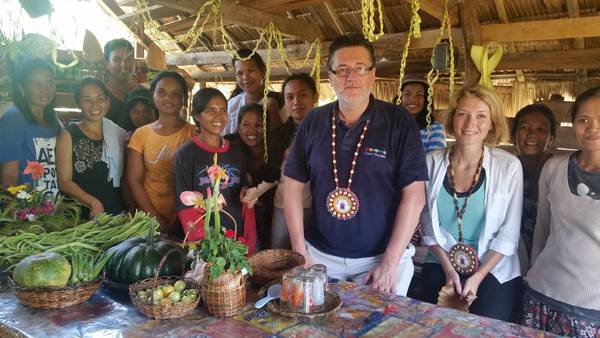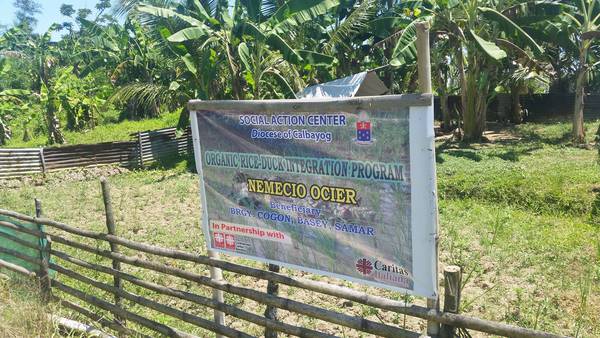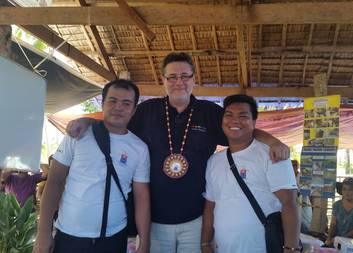At the end of May, the Caritas workers and its partner organization welcomed Jaroslav Olsa jr., the Ambassador of the Czech Republic in the Philippines, and Jan Vytopil, the Chargé d'Affaire, on Samar. Caritas workers introduced charity projects to them which support local agriculture.
 The Caritas team accompanied both visitors to the villages Osmenia, Panan-awan and Cogun. They had the chance to observe how successful the local farmers are in planting and growing thanks to financial support of Caritas Czech Republic, Caritas Italy and Caritas Romania.
The Caritas team accompanied both visitors to the villages Osmenia, Panan-awan and Cogun. They had the chance to observe how successful the local farmers are in planting and growing thanks to financial support of Caritas Czech Republic, Caritas Italy and Caritas Romania.
"For the farmers, who I work with, is very important to know about the interest of donors to help them. Their motivation, effort and work strength are now even more encouraged. I believe that we will aid them more in participation with Caritas Czech Republic," said Ernesto Llarenas Oreo, the Local Project Coordinator of Caritas.
The Embassy of the Czech Republic visitors also headed out to Basey, the town on the west of Samar. Last year, Caritas CR in cooperation with Caritas Romania has equipped three schools thanks to financial support from the Czech Development Agency. Jaroslav Olsa jr., the Ambassador, met with teachers and then Mr. Junjie Igmedio Ponferrada, the Mayor of Basey.
" I am extremely touched and happy for the citizens of Basey that the Czech Republic supported the renewal of schooling and helped to buy the missing equipment," said Mr. Ponferrada with words of appreciation in an official meeting.
I am extremely touched and happy for the citizens of Basey that the Czech Republic supported the renewal of schooling and helped to buy the missing equipment," said Mr. Ponferrada with words of appreciation in an official meeting.
Caritas CR has operated on the island of Samar since the beginning of 2014, a few weeks after the Haiyan typhoon hit the islands. Immediate direct humanitarian aid has gradually turned into a recovery in the affected areas including the island of Samar. Caritas CR has chosen the farmers as the most vulnerable group after a detailed analysis. Nowadays Caritas CR works with more than 500 farmers families. In addition it helps to provide income, teaches farmers how to save costs on input, especially for fertilizers and sprays, as well as how to grow the crops in general so that their crops withstand the dozens of typhoons which annually pass over the islands.







